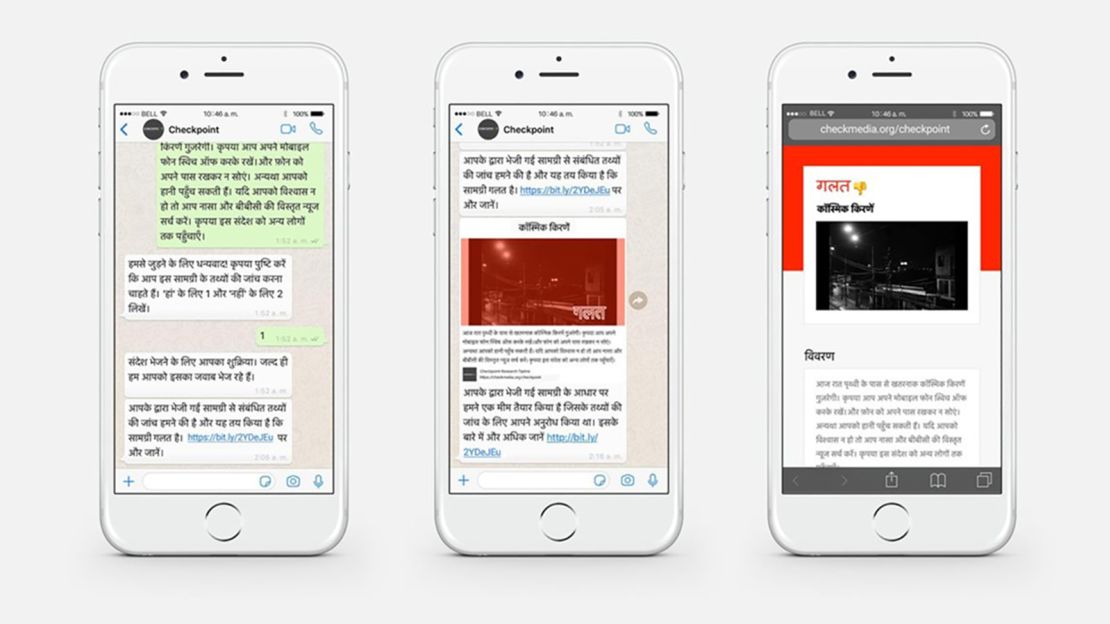WhatsApp has a new strategy for tackling misinformation during India’s election: crowdsourcing.
The company is offering its 200 million users in India a new tip line where they can send in messages, pictures or videos they want fact-checked. A “verification center” will respond to the user, indicating whether the information is true, false, misleading or disputed.
The Facebook-owned messaging app has developed the tip line, known as Checkpoint, in partnership with an Indian startup. It will be available in English and four Indian languages — Hindi, Telugu, Bengali and Malayalam.
WhatsApp is hoping to use the new service to broaden its fight against fake news during an election that’s viewed as a key test of whether social media platforms can prevent the spread of rumors and hoaxes.
“The challenge of viral misinformation requires more collaborative efforts and cannot be solved by any one organization alone,” the company said in a statement on Tuesday.
Read more on India
WhatsApp, Facebook (FB) and other social networks like Twitter (TWTR) have taken several steps to try and prevent their platforms from being used to spread misinformation during India’s election, the world’s biggest exercise in democracy. They’ve limited message forwarding, banned fake accounts, labeled political advertising and partnered with fact-checking websites.
But with 900 million people eligible to vote and more than 560 million internet users, the tech companies may be fighting a losing battle.

Their job is made even harder by politicians who themselves spread misinformation. WhatsApp warned political parties earlier this year that it will block their accounts if they engage in suspicious activity.
Facebook did exactly that on Monday. It took down hundreds of pages, groups and accounts linked to India’s ruling party and its main opposition for what it described as “coordinated inauthentic behavior.”
WhatsApp itself was thrust into the center of the country’s fake news debate last year, when viral hoaxes spread on its platform were blamed for more than a dozen lynchings.
The misinformation menace is only expected to get worse in the lead up to the vote, which begins on April 11 and runs for around five weeks.
WhatsApp said the tip line initiative would “help contribute to the safety of the elections … and deter people from sharing rumors that have no basis in fact,” it added.
It would also create a database of rumors to study misinformation during elections, the company added.






















